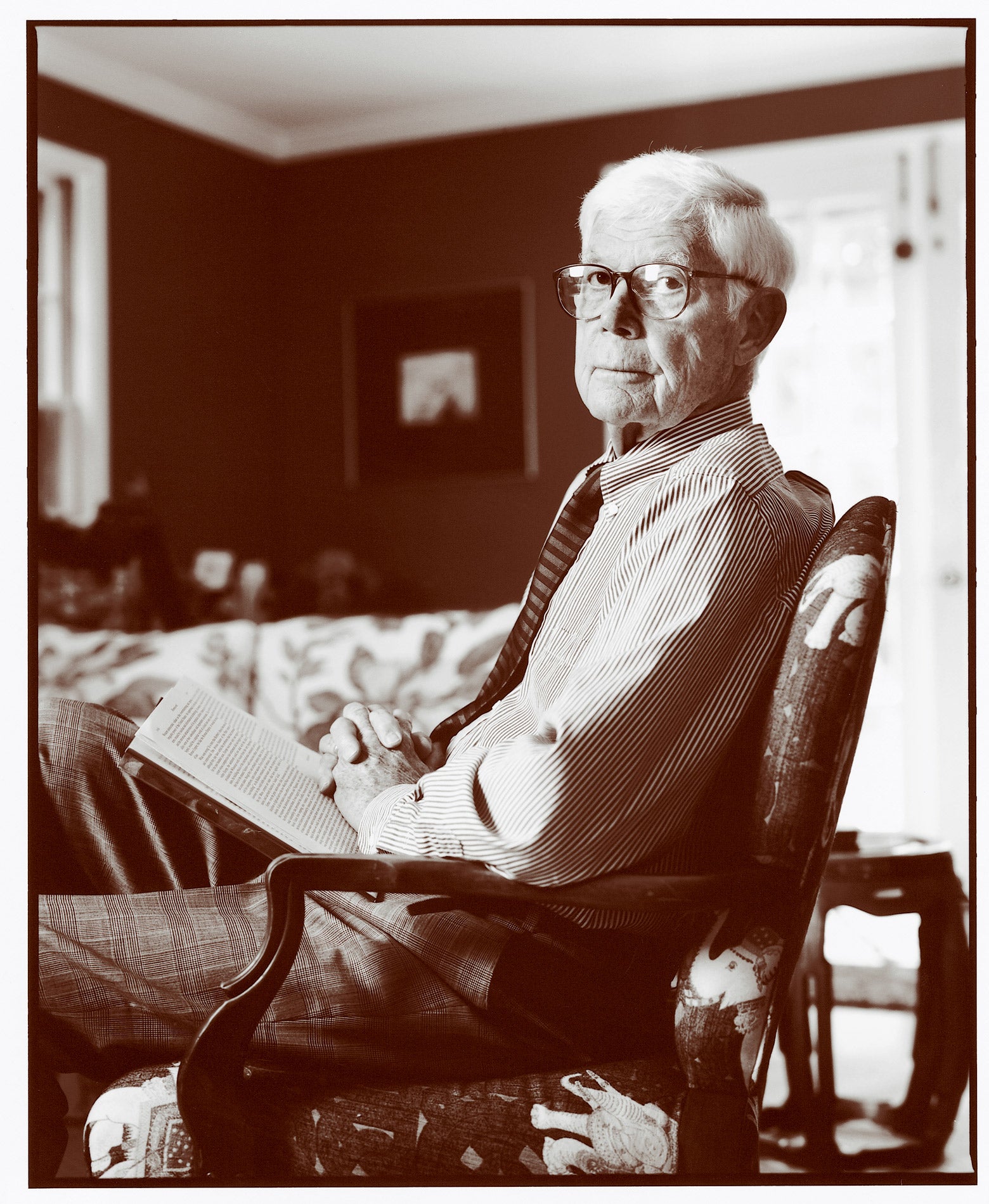New and fresh ideas give John Anderson sustenance. Independent thought, independent actions. Once a reliable Midwestern Republican, Anderson changed his views and then changed the dynamics of modern presidential races with his third-party candidacy in 1980. Now he craves more change to increase voter participation and activism: instant runoff voting, fair ballot access, alternative political parties, campaign finance reform. He was reform before reform was cool. And he’s got plenty of fight in him.
“A 14-term incumbent unexpectedly announced that he was going to retire. Legend has it he may have had one or two too many drinks the night before he made the announcement–and that, on reflection, he rather regretted that he had–but by then it was too late because I jumped in on the urging of some of my friends.”
“There was not any point in running under any other party because back in those days . . . you talk about the solid South. This was even more solidly a Republican bastion of strength up in the northwestern corner of Illinois.”
“I was a child of the civil rights revolution.”
“We could not be united as a people and be one nation if we continued to use the color line and the color bar.”
“I was the first Republican in the House to call for [Nixon’s] resignation. It was in that spirit against old ideas and old and discredited party leaders that I think made me kind of position myself as an avatar of the more futuristic thinking that I wanted to see the Republican Party embrace.”
“I was almost destined to make the decision, which I did in 1980, that rather than continue to fight a local war with right-wing conservatives, I would bring my broader viewpoint on where the Republican Party should be positioning itself as we entered the decade of the ’80s.”
“I was really buoyed by the thought that so many people didn’t listen to the internal chant that was ringing in my ears every place I went: ‘Don’t waste a vote. If you don’t vote for a major-party candidate, you are wasting your vote.'”
“I don’t think that many will [switch parties]. You pay a heavy price in political ostracism.”
“A party can’t simply continue almost by rote.”
“I do not want to see a world dictator. That is the last thing in the world I want to create. And we have avoided that under our federal system, and I think we could avoid it under the kind of democratic federation that I would like to see administer over larger areas of world federalism.”
“I think young people have a healthy sense of the kind of injustice that is meted out by corporate executives running partnerships off the books, fattening their own pocketbooks, and making off with a bundle to the detriment of the poor shareholder who ends up in a state of total collapse.”
“All elements in our society have got to be listened to; their voices have got to be heard. That means we’ve got to look at the laws of democracy, and evolve and develop a structure that is more responsive than the current structure.”
“I am now 80 years of age, and I suppose with great age comes great wisdom. I would like to think so. But also there are certain infirmities of the flesh that make it a little harder to provide the kind of dynamism that is needed in the role of serving as president.”
“You’ve got to look around, look up, look on both sides of you. And ahead. And behind you.”
“What drives me is the realization that there are a lot of people like me who I can make a common bond with and make common cause. To try to have an influence even though I am not an elected official and never intend to run again. I’ve still got to do something. I’ve got to keep thinking. If I don’t, I will start to die.”
“I don’t want to sound vainglorious because, after all, I failed in the biggest challenge of all when I tried to become president. Let’s say I am satisfied that I have had a fairly useful life–and that I have accomplished a few things and hopefully they will contribute to a better future.”
“I am not going to tell you there aren’t times when I go into a kind of a blue funk. But then, I come out of it. I realize after hopefully not too much time that I should be ashamed of myself. That is the easiest way out. The harder way is to go about trying to change what you don’t like.”
